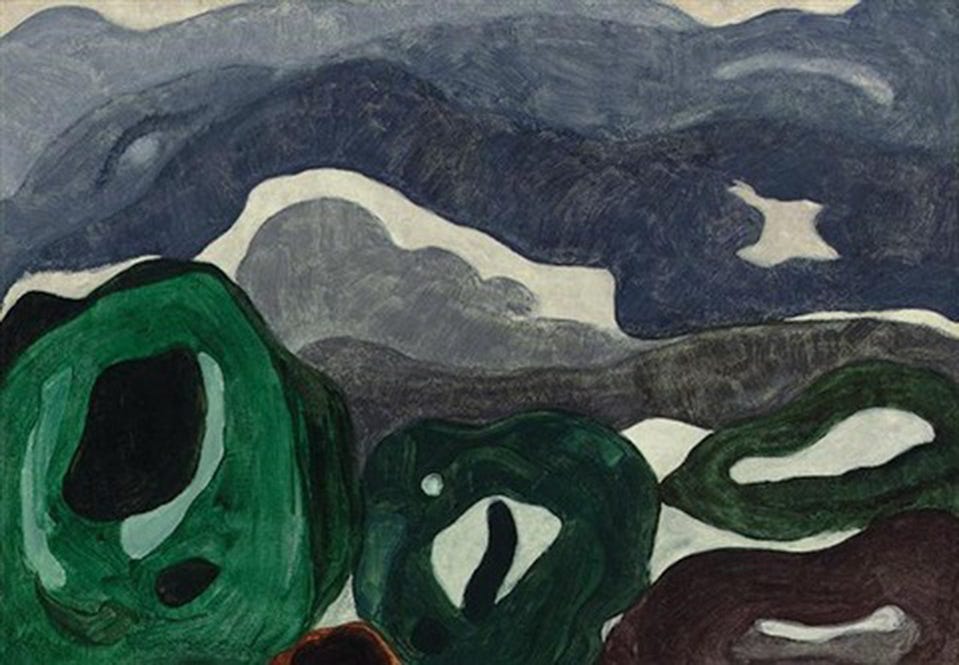Wind
The world as we know it seems like it’s losing some of its resilience. I haven't seen a redwing for a couple of weeks and wonder if they've set off on their migration, leaving our frozen island behind
Wind thrums violently through the railings overlooking the Gorge, the noise taking me by surprise so that I step back and look around before realising what is at play. The rain would be imperceptible but the blustery gale sends it through the cracks in my clothing and whips mositure from my eyes.
I look down at the rising tide ploughing through the Gorge. A pigeon dive-bombs at pace, tucking its wings. It has no need to do this other than pure pleasure. Crows corral, ferris-wheeling in circles. Over the parapet of cliff two jackdaws slide slowly past. They are head-first into the wind, and their carefully tweaking flight feathers remind me of the delicate, complicated play of plane flaps on landing.
The wind whips my mind away to a family trip to Aldeborough sometime in the 1980s. We took a rain-soaked walk along the beachfront that we were ill-prepared for. My first wet denim rash, red thighs for all of us. I remember a stairwell and the warm relief of it as we piled back into the Trusthouse Forte where we were staying. I also have a memory of the seafront, but strangely from birds eye view, looking down and along the stretch of coast at an angle I couldn't possibly have ever had. The Aldeborough trip is a touchstone for my brothers and I: the finest example of my parents' willingness to put us through the grinder via a perfect storm of a too long walk, bad clothing, and dogged persistence. I haven't been back to Aldeborough since. I'm sure it's lovely.
This current cold snap that has frozen parts of the Thames and has forced farmers I follow on Twitter to lug unfrozen water two, three, four times a day to their livestock has undoubtedly sounded a death knell for hundreds of thousands of small animals across the country. I think of the birds first of course, but most of the wild population will have been hit, either directly or indirectly. Hard not to observe a similarity to the virus surging through the human population and the more existential threat of climate change that is destroying life all the time, everywhere, at a terrifying and accelerating rate. Bird populations generally rebound quite fast from tough winters. A lot of birds don't make it past their first. But right now everything feels a little more final, a little bit more irreversible. The world as we know it seems like it’s losing some of its resilience. I haven't seen a redwing for a couple of weeks and wonder if they've set off on their migration, leaving our frozen island behind.
Thin washes of backlit cloud befuddle the distance between where I stand and the docks at Avonmouth. Knee high information boards outline the prehistoric origins of the gorge, tout the Bristol Onion and the peregrine falcons, but all I spy beyond the railing, before the cliff drops off into thin air and the gorge far below, is an empty Fanta bottle and McDonald's cup vibrating in the wind. Left to right the gorge feels like a giant sweep of history. From the SS Great Britain, past the suspension bridge and the giant, gaping bite marks of the quarries that built Bristol. The rock, water and trees tell more lasting, non-human histories. Follow the tide past Lamplighter's Marsh, Avonmouth and out to the Bristol Channel and you join another ocean of stories and histories. I wheel my bike around, set off to meet F and A to walk the dog. Past the merchant houses, the sandstone Stars of David, joggers, dogs, families, turning cars, into the sideswiping wind.


